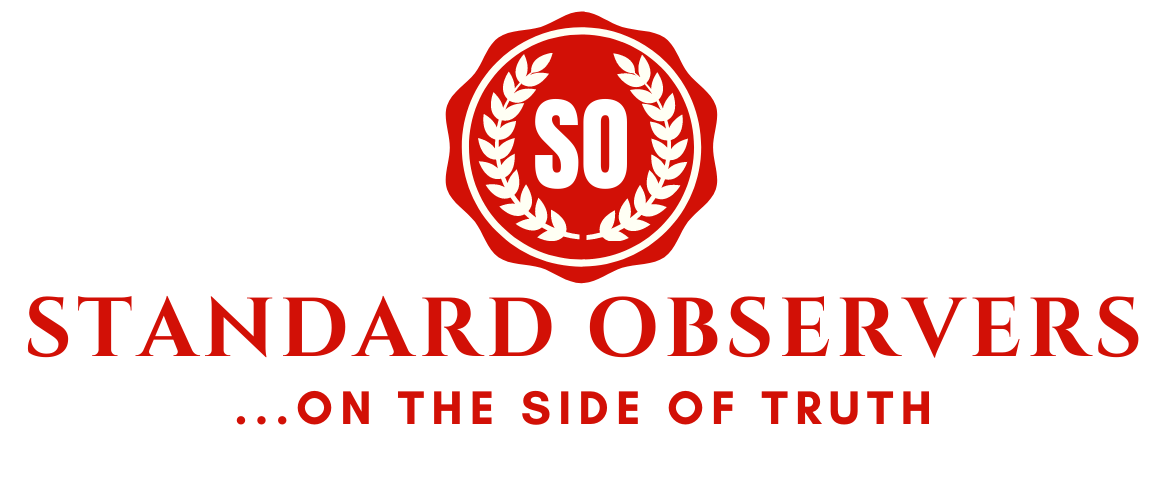Former Deputy governor of the Central Bank of Nigeria, CBN, Professor Kingsley Moghalu, has advised the Federal Government to declare May 30th as a public holiday to recognise over 3 million Igbos and other Eastern minorities who perished during the 30 months Civil War.
The former presidential candidate of the Young Progressives Party (YPP), also advised the federal government to establish a truth and reconciliation commission for survivors of the war.
His advice follows renewed agitations in the South East and constant attacks on federal government facilities, especially the Police and Independent National Electoral Commission, INEC.
Moghalu in a press conference on Tuesday said setting up the commission will be a first step to stabilise Nigeria and begin the process of national healing and reconciliation.
While condemning the attacks on public infrastructure and security operatives in the south-east, Moghalu said it is clear that the federal government has not adopted a root-cause approach to the agitations for secession in different parts of Nigeria, The Cable reports.
“The root cause of these separatist agitations is injustice. An unwillingness to recognise this fact leads to avoidance or convenient distortions of history in order to maintain injustice and the transient advantage this state of affairs confers on certain vested interests,” he said.
“A Truth and Reconciliation Commission’s primary assignment should be to reconcile Nigerians across sectarian divides that have been sustained by the more unfortunate aspects of our history, in particular the military coup of January 1966 and its casualties, the counter-coup of July 1966 and the pogrom of an estimated 100,000 Nigerians of a specific ethnic origin, and the consequent civil war in which an estimated two million people lost their lives. If we must build a nation of our dreams, we have to confront our history and utilise it for reconciliation and not for division.
“This begins with a conscious decision to end a policy of conveniently sweeping history under the carpet and to recognise certain historical facts. In this context, it is important to recognise through a National Holiday the loss of millions of lives in the Nigerian civil war, currently marked unofficially by many Nigerians as Biafra Remembrance Day.
“To continue to fail to do so is to deliberately avoid recognising the value of the millions of lives lost in the war. The lives of these departed were lost in the bid to keep Nigeria one. Rwanda recognises its dead in its civil war and the genocide, Israel recognises the Holocaust with a memorial and a museum, and the United Nations recognises that tragedy with an International Holocaust Remembrance Day.
“A truth and reconciliation commission, along with other policy actions, will go a long way in cleansing the bitterness that has been planted in the hearts and minds of many Nigerians.
“As a former senior official of the United Nations with a track record in conflict resolution and rebuilding failed states such as Angola, Cambodia, Croatia, Rwanda, and Somalia, and in international peace and security operations, I am making the recommendations in this press statement as a contribution to stopping immediately the current bleeding of our country.”
The former deputy governor of the Central Bank of Nigeria (CBN) further recommended that the commission should comprise seven independent members of high reputation and relevant expertise — one from each geopolitical zone, and one international member assigned from the United Nations or from South Africa, adding that both entities have extensive experience in reconciliation matters.
He added that the commission should be given a six-month mandate to examine the civil war, “invite witnesses, survivors and critical players still alive to make statements, and recommendations that will promote national reconciliation by turning historical memory into a positive force for mutual forgiveness and nation-building”.
Moghalu recommended that the president appoints a panel of historians, with equal representation from the northern and southern parts of Nigeria to review and agree on a curriculum of contemporary national history, including the Nigerian civil war, to be taught in schools from the specific perspective of lessons learned, national healing and reconciliation.







